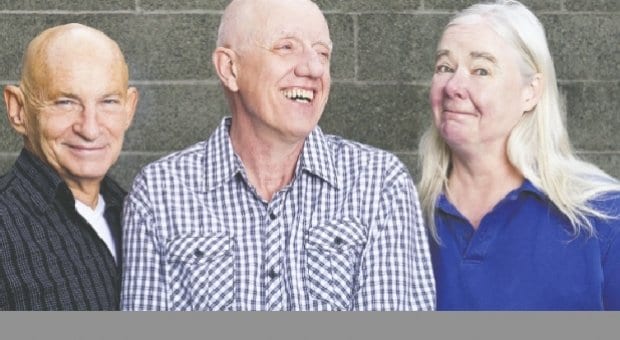Little Sister’s bookstore has won the Gray Campbell Distinguished Service Award in recognition of its “courageous support of the LGBT community and their commitment selling the work of local authors and publishers.”
The award, conferred annually by the Association of Book Publishers of BC to an individual who has made significant contributions to book publishing in the province, will be presented at a dinner to be held April 24 at The Arbutus Club in Vancouver.
Little Sister’s co-owner Jim Deva expressed mixed feelings about the accolade. While he’s “proud about our history” and says it’s nice to be recognized in the book industry for what was done in the past, he points out that the retail book industry is “decimated.”
“It’s kind of an unusual timing,” he says of the award, “because we see sort of the demise of bookstores.”
To be championed by the publishers is very nice, Deva says, but he’d “prefer some more books to sell.”
He says he feels the publishing industry has forgotten about retailers. “That shocks me,” he says. “I’m glad they appreciate us, but I just wish the hell they’d get to work and publish some queer work.”
Deva says he’d like to see publishers come up with a model where retailers sell a significant portion of titles, noting that “most of the work now goes to Amazon and avoids retail entirely.” He considers that to be an “unacceptable” model for the future of readers in Canada.
“I may be braying against the wind, but I can’t be ecstatic when I’m in front of [publishers],” he says. “I prefer to plan for what we can do for the future.”
For two decades, Little Sister’s challenged Canada Customs — now the Canada Border Services Agency (CBSA) — in court for regularly seizing gay material at the border because it deemed it obscene. In 1990, the bookstore argued that customs officials’ censorship violated Canada’s Charter of Rights and Freedoms and claimed the right to be able to view “expressive materials,” a fight that ended up in the Supreme Court 10 years later.
The court took customs to task for its homophobic administration of the law but upheld its power to decide what publications should be allowed to enter the country.


 Why you can trust Xtra
Why you can trust Xtra


